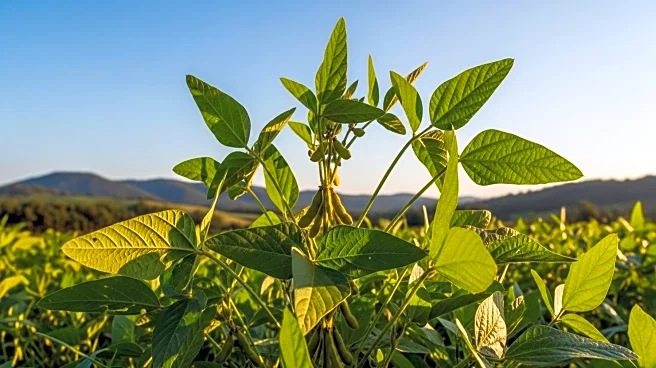What's Happening?
Brazil, a leading global soybean producer, is advancing efforts to align agricultural productivity with sustainability goals through low-carbon soybean farming. Roberta Carnevalli, head of R&D at Embrapa’s Soybean Unit, is spearheading initiatives to reduce greenhouse gas emissions and enhance carbon sequestration in soybean production. The approach involves managing soybean systems to minimize emissions and maximize carbon retention in the soil. This method is part of Embrapa’s Low Carbon Soy Program, which aims to certify soybeans produced with low emissions and high carbon sequestration.
Why It's Important?
Low-carbon soybean farming is significant for reducing Brazil's agricultural emissions, which are a major component of the country's overall emissions profile. By adopting sustainable practices, Brazil can improve its environmental image and contribute to global efforts to combat climate change. For farmers, these practices offer benefits such as increased productivity, resilience to climate variations, and potential market advantages through certification. The initiative supports Brazil's ability to sustainably increase agricultural output without expanding into forested areas, preserving biodiversity and natural resources.
What's Next?
Embrapa’s Low Carbon Soy certification is expected to be available by mid-2026, offering farmers market differentiation and financial incentives. Producers are encouraged to adopt sustainable practices now to prepare for certification. The program emphasizes continuous use of good agricultural practices, including no-till farming, crop rotation, and optimized soil management. As the certification becomes available, farmers who have implemented these practices will be well-positioned to benefit from the program’s advantages.










